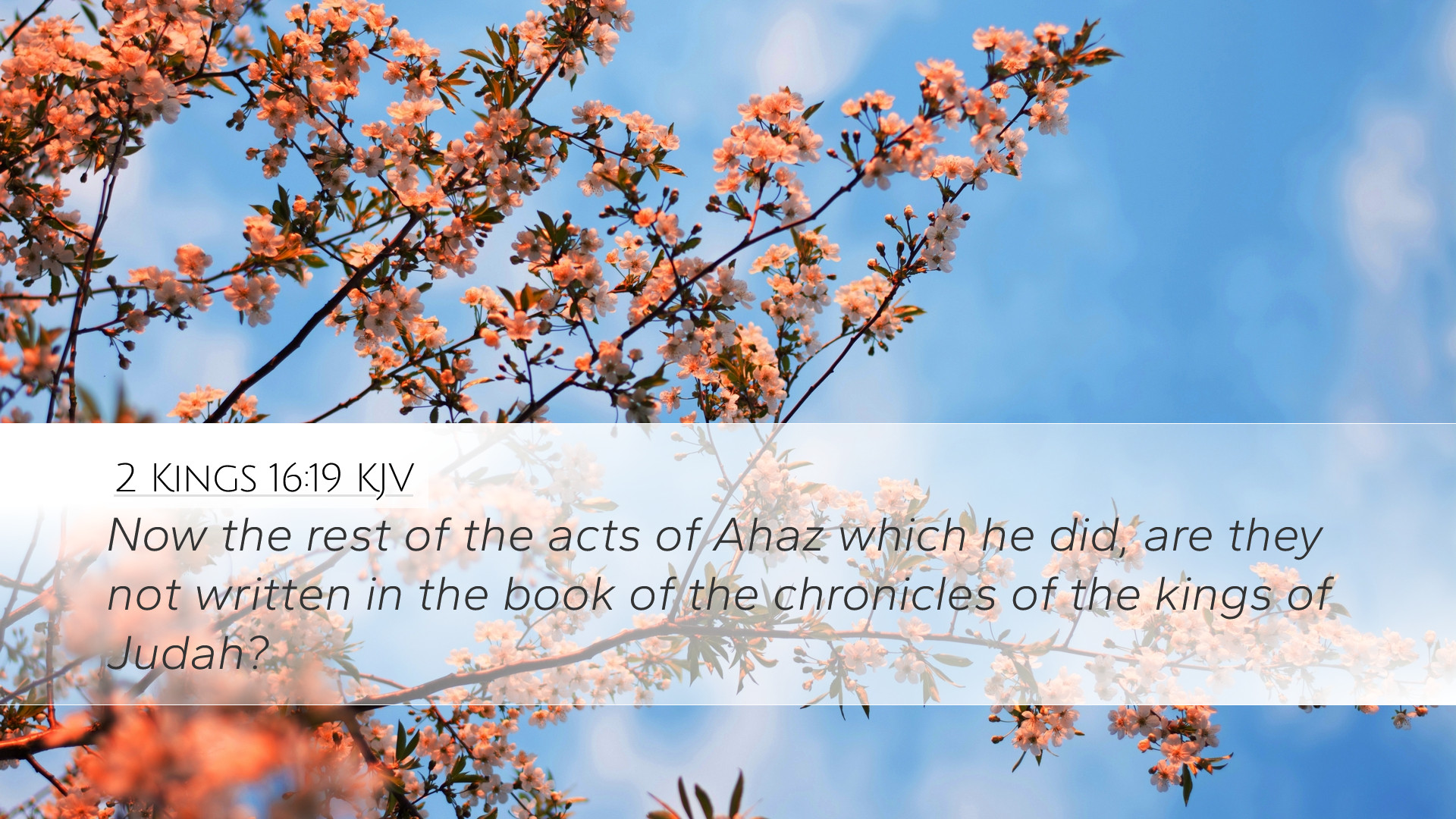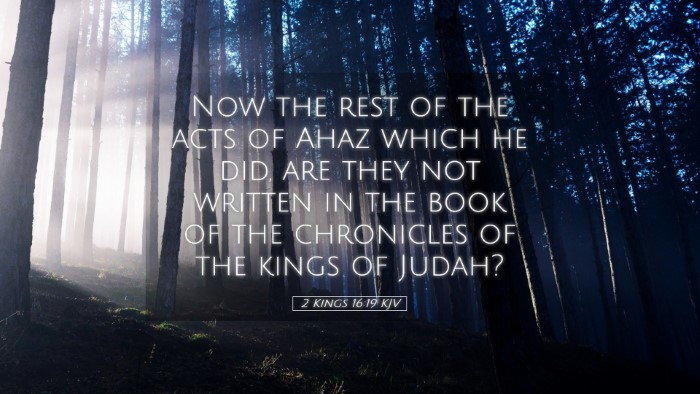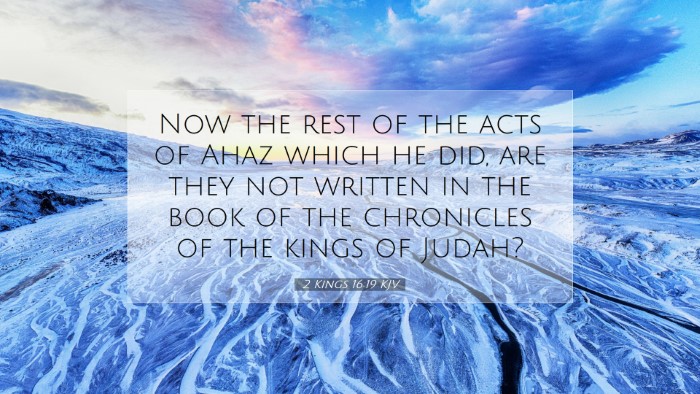Old Testament
Genesis Exodus Leviticus Numbers Deuteronomy Joshua Judges Ruth 1 Samuel 2 Samuel 1 Kings 2 Kings 1 Chronicles 2 Chronicles Ezra Nehemiah Esther Job Psalms Proverbs Ecclesiastes Song of Solomon Isaiah Jeremiah Lamentations Ezekiel Daniel Hosea Joel Amos Obadiah Jonah Micah Nahum Habakkuk Zephaniah Haggai Zechariah Malachi2 Kings 16:19
2 Kings 16:19 KJV
Now the rest of the acts of Ahaz which he did, are they not written in the book of the chronicles of the kings of Judah?
2 Kings 16:19 Bible Commentary
Commentary on 2 Kings 16:19
2 Kings 16:19 states: "Now the rest of the acts of Ahaz which he did, are they not written in the book of the chronicles of the kings of Judah?" This passage serves as a transitional verse, typical in the narrative of the kings of Israel and Judah, where the reign of one king is summarized before moving on to the next.
Historical Context
The verse occurs during the reign of King Ahaz of Judah, who ruled from approximately 735 to 715 B.C.E. His rule is characterized by a strategic alliance with Assyria, which had a profound impact on the political landscape of the time. It is essential to understand the sociopolitical pressures faced by Ahaz, particularly with the threats from Israel and Aram.
- Threat from Israel: During Ahaz's reign, the kingdom of Israel under King Pekah allied with Rezin of Aram to threaten Judah.
- Alliance with Assyria: In response, Ahaz sought help from Tiglath-Pileser III, the Assyrian king, showcasing a reliance on foreign power rather than faith in God.
The Divided Kingdom
Understanding the division between the northern kingdom of Israel and the southern kingdom of Judah adds depth to the commentary on Ahaz. The chronicler mentions that the reign and acts of Ahaz reflected poorly not only on him but also on Judah, as the environment of idolatry and disobedience flourished during his rule.
Theological Implications
This verse highlights the significance of historical records as a means of teaching future generations. The "book of the chronicles" referred to indicates the value placed on documentation in the ancient Near East. Such records are crucial for understanding God’s dealings with His people throughout history.
- Role of History: Historical narrative is essential for reflecting on God's covenant and the consequences of fidelity or infidelity to that covenant.
- Accountability: Every king was held accountable for their actions, and Ahaz's reign serves as a warning to subsequent leaders of Judah.
Commentary Insights from Public Domain Sources
Matthew Henry: In his commentary, Henry emphasizes the importance of Ahaz's actions, indicating that although they seem to have political advantages, they reveal a heart turned away from God. He suggests that Ahaz's reliance on Assyria instead of trusting in God exemplifies a critical failure in his leadership.
Albert Barnes: Barnes comments on the narrative's structure, noting how the mention of the 'book of the chronicles' serves as a reminder for the reader to consider the complete story of Ahaz's reign. He points out the moral implications of seeking alliances with ungodly nations and the spiritual decline that resulted.
Adam Clarke: Clarke adds a layer of depth by interpreting the phrase regarding the 'rest of the acts' as an encouragement for the faithful, asserting that God's records of these kings not only showcase their failures but also serve as a historical testament to God's mercy and judgment.
Practical Applications
This verse raises significant questions for modern-day leaders, pastors, and scholars regarding faithfulness and reliance on God versus human schemes. Ahaz's decisions serve as a cautionary tale:
- Dependence on God: Leaders must evaluate their sources of security: Are they looking to God or to the world's powers?
- Historical Reflection: The reliance on chronicled acts is a call to reflect on God’s faithfulness in past generations.
- Spiritual Legacy: What legacy will our actions leave for those who follow us? Ahaz's legacy was marked by disobedience and loss, posing a challenge to the integrity of present leadership.
Conclusion
In summary, 2 Kings 16:19 encapsulates the account of King Ahaz and invites readers to delve deeper into the historical and theological significance of his reign. Through the summaries provided in chronicled accounts, we are reminded of the providential hand of God working in the affairs of nations and the importance of living in fidelity to His commandments.


